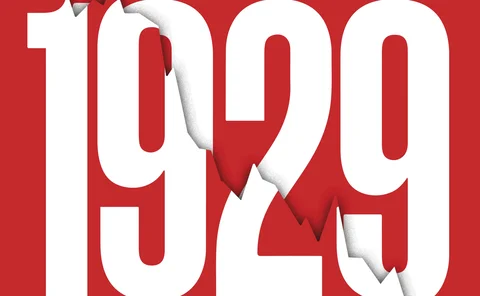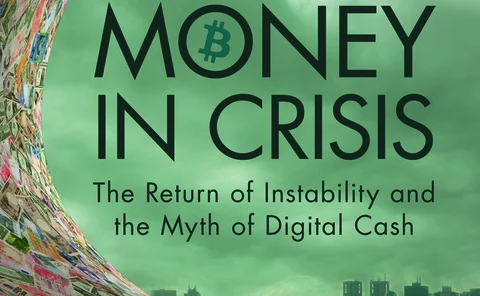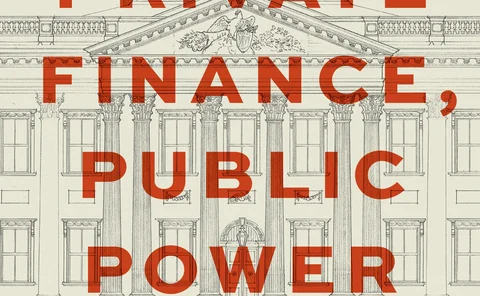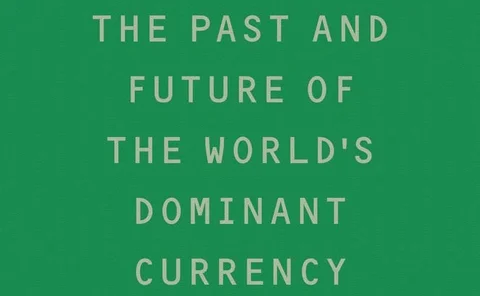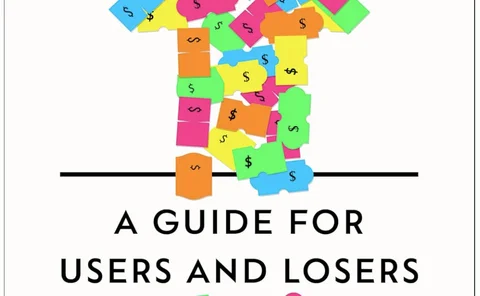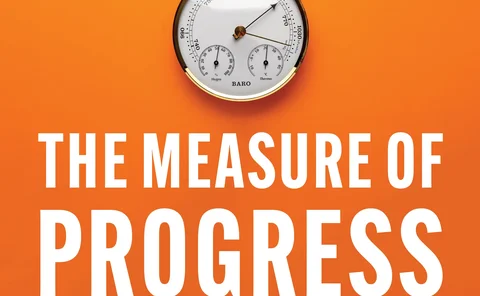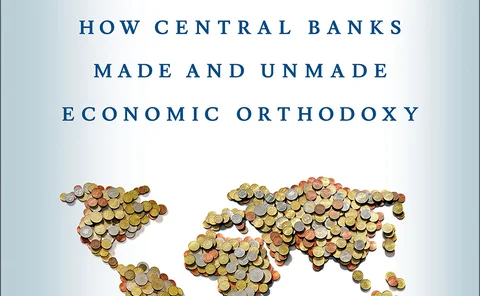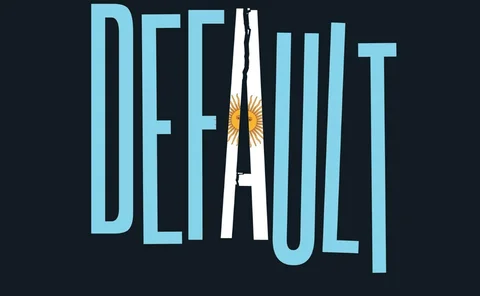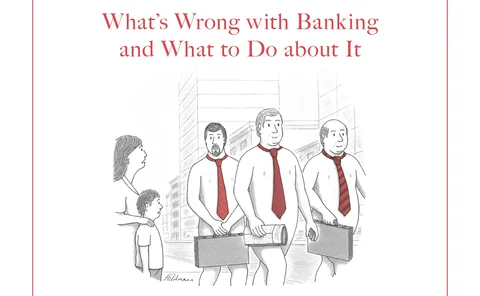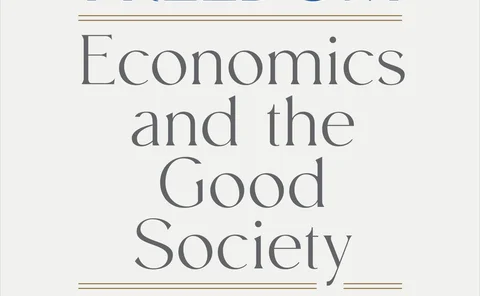Book reviews
Book notes: Before the Fed, by Jon Moen and Mary Tone Rodgers
A significant contribution to understanding private-sector financial crisis responses, relevant to today’s lender-of-last-resort function
Book notes: Crisis cycle, by John H Cochrane, Luis Garicano and Klaus Masuch
This book ought to be read by anyone with an interest in or influence on the future development of the Emu
Book notes: Bankers’ trust, by Aditi Sahasrabuddhe
A novel investigation into how trust among central bankers – or lack thereof – helped and worsened crises of the past
Book notes: Private finance, public power, Peter Conti-Brown and Sean H Vanatta
A detailed history of bank supervision in the United States from 1789 to 1980
Book notes: King dollar, by Paul Blustein
A well-researched overview of the position of the US currency, providing an optimistic view on the future of ‘king dollar’.
Book notes: How low interest rates change the world, by Jesper Rangvid
This book investigates the possible causes of ultra-low interest rates, the problems low rates cause and the path of future rates
Book notes: Inflation, by Mark Blyth and Nicolò Fraccaroli
An accessible explainer about the narratives surrounding inflation – and who it benefits
Book notes: Making money work, by Matt Sekerke and Steve H Hanke
This book provides a critique of the post-crisis monetary and financial system, proposing changes that deserve to be broadly read
Book notes: Beyond banks, by Dan Awrey
The book proposes thoughtful reforms to establish the same reliability for new monetary IOUs as currently exists for bank IOUs
Book notes: Central banking at the frontier, by Thammarak Moenjak
This well-structured book provides a comprehensive overview of the challenges digitalisation poses for finance and includes possible actions for central banks
Book notes: The young Fed, by Mark Carlson
A thoughtful book on an important topic and a less widely studied period of US financial history from which every central bank economist could learn
Book notes: Our dollar, your problem, by Kenneth Rogoff
An excellent overview of the evolution of the world economy during the last seven decades, and a warning against complacency
Book notes: The measure of progress: counting what really matters, by Diane Coyle
The book offers important insights into national income data compilation that are frequently ignored by economists
Book notes: The political economy of central banking, by Alessandro Roselli
Roselli’s book offers a comprehensive history of the relationship between governments and central banks
Book notes: Smart money: how digital currencies will win the new Cold War, by Brunello Rosa with Casey Larsen
This alarmist book, although lacking nuance, provides a lucid account of how CBDCs could play a decisive role in geopolitical dominance
Book notes: Unexpected revolutionaries: how central banks made and unmade economic orthodoxy, by Manuela Moschella
This book delves into the political science perspective of central banking since the 1970s but lacks nuance and depth
Book notes: Central bank capitalism: monetary policy in times of crisis, by Joscha Wullweber
This book asks if independent monetary policy is feasible at a time when central banks prop up the poorly regulated shadow banking sector
Book notes: Default: the landmark court battle over Argentina’s $100 billion debt restructuring, by Gregory Makoff
Required reading amid current high sovereign debt, global tensions and the urgent need for climate finance
Book notes: A fly on the RBI wall: an insider’s view of the central bank, by Alpana Killawala
This book offers insights into the inner workings of the growing Indian economy and pro tips on communication
Book notes: The bankers’ new clothes, second edition, by Anat Admati and Martin Hellwig
A disjointed book where ‘I told you so’ new chapters add little to the excellent original analysis
Book notes: The road to freedom: economics and the good society, Joseph E Stiglitz
A stimulating amalgamation of previous ideas presenting the kind of economic system most conducive to decent society

